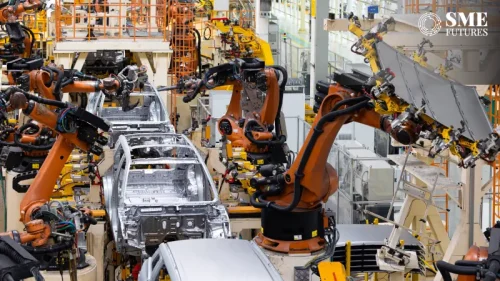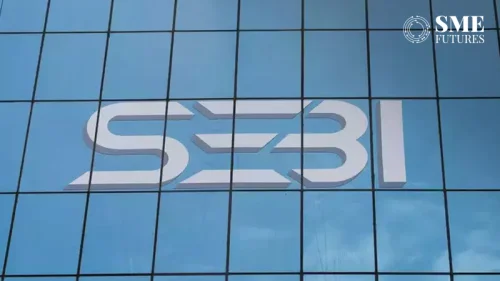As the Union Budget 2025-26 approaches, the Federation of Indian Chambers of Commerce and Industry (FICCI) has put forth an 11-point agenda aimed at fostering economic growth, enhancing ease of doing business, and ensuring inclusive development. Building on the momentum of the Union Budget 2024-25, which focused on Viksit Bharat and highlighted nine reform priorities, FICCI emphasises the need for continued and deepened reforms.
Key recommendations from FICCI
Boost capital expenditure
FICCI suggests a 15 per cent increase in capital expenditure for FY26 over the ₹11.11 lakh crore allocated in FY25. This investment is deemed critical for sustaining growth amid global headwinds, focusing on physical, social, and digital infrastructure. “Given the uncertainty amidst persisting global headwinds, government’s thrust on public capex on physical, social and digital infrastructure will be important to maintain the growth momentum,” it said.
Reform factor markets
Creating inter-state institutional platforms akin to the GST Council is proposed to drive reforms in land, labour, and power sectors, areas critical for economic competitiveness but often mired in state-level complexities. “Many of the next generation reforms lie in the state & concurrent domains and require consensus building to take them forward. Inter-state institutional platforms on the lines of GST Council can be created – especially for reforms in areas of land, labor and power,” suggested FICCI.
Simplify tax structures
Recommendations include rationalising TDS/TCS rates into a simple two- or three-tier system, eliminating TDS/TCS on GST transactions.
“Also, stop the practice of imposing TDS/TCS on transactions that are subject to GST since the relevant information is already available through GST filings,” FICCI recommended.
Independent dispute resolution forum
To reduce litigation on the direct tax matters, FICCI suggested to introduce a new forum comprised of independent experts like retired judges of Supreme Court or High Court, retired President/Vice President of Tribunal or professionals like lawyers or Chartered Accountants with a stipulated minimum experience to deal with disputes at assessment or post assessment level.
“A time bound resolution by independent forum will build confidence amongst taxpayers who may come forth to settle the matters instead of pursuing litigation in fear of penalty and prosecution. It will reduce prolonged litigation and demands/refunds locked up due to such litigation,” said the apex body.
Accelerate sustainability initiatives
FICCI also emphasises India’s commitment to net-zero emissions by 2070, proposing measures like carbon capture technologies, a circular economy framework, and green financing within the Priority Sector Lending framework. A Centre of Excellence for climate-smart agriculture technologies is also suggested.
- Develop Carbon Capture, Utilisation and Storage technologies as a mission in line with Green Hydrogen Mission to accelerate deployment of tech solutions for industrial decarbonisation.
- Create pathways for green transition for all sectors to meet India’s net-zero emission target by 2070. The roadmaps should look at all aspects, such as technology, financing, circularity, impact on jobs, etc.
- Launch a national level vision document for circular economy that provides a framework with clear goals, strategies and initiatives that promote circular practices across different sectors.
- Initiate a review of the Priority Sector Lending framework to bring within its purview climate adaptation and climate risk mitigation activities such as clean transportation (eg. Electric Vehicles), EV charging infrastructure, sustainable water and waste management, recycling, etc.
- Announce a Centre of Excellence for developing and evaluation of climate smart agriculture technologies. Commercialise at least 5 climate smart technologies, each adopted by at least 5 million farmers over next 3 years.
Enhance women’s workforce participation
Allowing tax exemptions for daycare expenses and encouraging CSR fund utilisation for building dormitories for women in manufacturing sectors are proposed to empower women economically. Key recommendations are-
- Government may consider forming a statutory body to certify daycare centers and regularly monitor their quality to bring standardisation.
- Commuting to the place of work from home is generally seen as a constraint for women’s employment in manufacturing sector, especially when such places are away from residential areas. Building dormitories would enable more women participation in manufacturing. Government may consider allowing CSR funds to be used for setting up and maintenance of dormitories for women.
- Consider a special tax exemption up to a defined limit for working women for expenses incurred on childcare for children up to the age of 5 years.
Strengthen atmanirbhar defence
FICCI recommends prioritising indigenous and partnered defence production, fostering research in advanced technologies, and promoting defence exports through a dedicated agency.
- Only defence equipment made in India / partnered in India to be procured.
- Intensify research efforts to develop technologies to keep Indian armed forces ahead in areas such as robotics, quantum computing, sensors, hypersonics, directed energy and AI & ML.
- Build capabilities for millions of inexpensive small and micro-drone swarms that are weaponizable.
- Set up a Defence Export Promotion Agency that can co-ordinate with armed services, their foreign directorates, DPSUs, private manufacturers, MEA, Indian embassies, and MoD and communicate with foreign government and buyers.
Increase agricultural productivity
Key suggestions include launching an agricultural yield mission for the bottom 100 districts, training 3 million farm technicians, and galvanising private sector participation in horticulture clusters.
- Launch an agricultural yields mission for bottom 100 districts on the lines of aspirational districts programme
- Launch a national program to develop 3 million farm technicians in 5 years to provide new technologies and services to farmers. Each village (India has 6 lakh villages) could have 5-6 technicians specialised in technologies such as soil testing, micro irrigation, drones, sensors, farm machinery, post-harvest technologies as well as operation and maintenance of in-village water supply system.
- Galvanise private sector adoption of horticulture clusters by completing allotment of 12 priority clusters, launching RFPs for remaining 41 identified clusters, allowing participation by farm aggregators and encouraging adoption of individual verticals at cluster level by larger specialised companies.
Promote domestic manufacturing of PCBAs
Addressing import dependencies, FICCI proposes rationalising tariffs, simplifying HS codes, and incentivising domestic PCBA production to boost the electronics manufacturing sector.
“The key asks are rationalisation of tariffs and HS Codes for PCBAs for various applications. Furthermore, as per discussions with the industry, we suggest that government may consider a differential of 25 per cent on custom duty on PCBA vis-à-vis its final product. For instance, if the custom duty on finished electronic product is 20 per cent, then the PCBA for this finished product could be at custom duty of 15 per cent. Additionally, for finished goods which are exempt from duty, we request that PCBA for these finished goods could be allowed under Import of Goods at Concessional Rate of Duty (IGCR) Route, with much simplified process under IGCR. Also, we need to be careful that tariffs are rationalised so that no duty inversion is there,” FICCI stated.
Focus on primary education
A national Information, Education, and Communication (IEC) campaign on foundational literacy and numeracy is suggested, along with vouchers for parents to promote school competition and quality education. “Offer vouchers to parents of school going children in form of e-Rupi to be redeemed at schools chosen by parents to send children to. Focuses on outcome of schools, incentivises virtuous competition among schools both government and private,”
Healthcare reforms
FICCI also recommends increasing public healthcare expenditure to 2.5 per cent of GDP, enhancing tax benefits for preventive care and health insurance, and incentivising investments in healthcare infrastructure, particularly in Tier 2 and Tier 3 cities.
“India’s public expenditure on healthcare touched 2.1 per cent of GDP in FY23 and 2.2 per cent in FY22, against 1.6 per cent in FY21, as per the Economic Survey. Yet it significantly lags the OECD average of 7.6 per cent and BRICS countries’ average of 3.6 per cent. FICCI recommends increasing this allocation to 2.5 per cent of GDP by 2025, as envisioned in National Health Policy 2017. This will help to strengthen healthcare infrastructure, ensure equitable access, and move closer to Universal Health Coverage (UHC) goals,”
To meet rising healthcare demands under Ayushman Bharat, FICCI also recommended to provide 50 per cent additional depreciation under Section 32 of the IT Act for investments in diagnostic infrastructure, especially outside metro cities. This aligns with depreciation benefits in other sectors and supports the vision of affordable healthcare for all. “Also offer tax incentives to domestic manufacturers, which will attract global manufacturers. Additionally, increase the depreciation rate for lifesaving equipment from 40 to 60 per cent, considering their short lifespan and fast-paced technological advancements,” it said.
The Economic Survey 2023-24 projected a 6.5-7.0 per cent growth rate for FY 2024-25, a moderation from the 8.2 per cent recorded in FY24 but reflective of India’s resilience in a challenging global environment.
FICCI’s recommendations aim to build on this foundation, ensuring that India continues its journey toward economic self-reliance, sustainability, and inclusive development.











